MercoPress. South Atlantic News Agency
Tag: Finances
-
Friday, December 6th 2019 - 08:52 UTC
Brazilian government optimistic about reforms and the economy's performance forecast
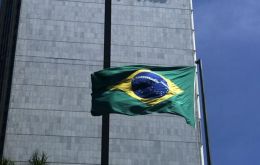
The Brazilian government’s commitment to getting public finances in order and maintaining strict fiscal discipline will lead to the country’s sovereign credit rating being upgraded, Treasury Secretary Mansueto Almeida said on Thursday.
-
Tuesday, November 19th 2019 - 06:38 UTC
Global trade forecasted to remain “below trend” in fourth quarter, WTO

The World Trade Organization said on Monday that growth in global goods trade is expected to remain “below trend” in the fourth quarter amid tensions and rising tariffs in key sectors.
-
Thursday, March 7th 2019 - 09:53 UTC
Argentina and Brazil markets open Wednesday with steep losses
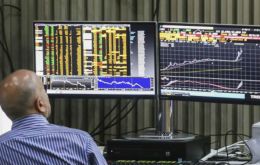
Latin American stocks hovered near 2019 lows on Wednesday led by steep losses in Argentina and Brazil which resumed trading after a two-day Carnival holiday, while currencies of oil exporters in the region fell as crude prices came under pressure. MSCI's index of Latin American stocks fell 1.3%, tracking losses across the region, barring Chile and Colombia which ended higher.
-
Wednesday, March 6th 2019 - 08:44 UTC
S&P slashes credit rating of several leading Mexican companies including national oil Pemex
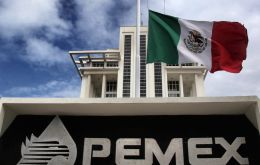
Rating agency Standard & Poor’s (S&P) slashed the credit rating for Mexico’s national oil company Petroleos Mexicanos, or Pemex, piling more pressure on the government to tighten up the debt-laden oil firm’s finances.
-
Wednesday, February 20th 2019 - 08:28 UTC
Global trade growth forecasted to slow this year, says
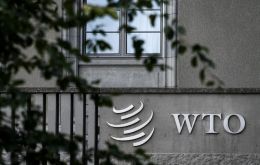
Global trade growth is on track to slide further the first quarter of 2019, the World Trade Organization said. WTO in September said it expects world merchandise trade growth will slow to 3.7% this year down from 3.9% in 2018.
-
Friday, February 1st 2019 - 10:43 UTC
New Brazilian Congress opens with great challenges, but Bolsonaro has been made vulnerable by Flavio's finances

The real business of governing Brazil starts this Friday for president Jair Messias Bolsonaro with the opening of the new congress through which his ambitious reform program must pass. The former army captain is currently absent from Brasilia will have to follow events from his hospital bed in São Paulo, where he is recovering from a third major operation following his stabbing at a campaign rally last year that almost cost him his life.
-
Thursday, January 31st 2019 - 09:15 UTC
Federal Reserve adopts “wait and see” policy. Economy facing contradictory picture of crosscurrents, says Powell
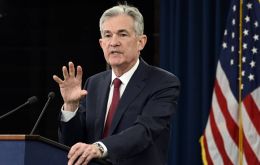
The Federal Reserve on Wednesday signaled its three-year-drive to tighten monetary policy may be at an end amid a suddenly cloudy outlook for the U.S. economy due to global headwinds and impasses over trade and government budget negotiations.
-
Wednesday, January 30th 2019 - 09:59 UTC
Brazil's federal debt increased 8.9% last year and is estimated to rise 11% in 2019

Brazil’s federal debt rose to 3.88 trillion Reais ($1.03 trillion) in December, up 8.9% from 3.56 trillion Reais a year earlier, and is expected to rise further this year, the Brazilian Treasury said. The Treasury predicts public debt this year will swell to somewhere between 4.1 trillion and 4.3 trillion Reais, the upper end of which would represent an increase of almost 11%, it outlined in its annual financing plan.
-
Tuesday, January 29th 2019 - 09:03 UTC
Venezuela approves a new, privately run, foreign exchange system; dollar sells at 3.200 Bolivars, 34% dearer
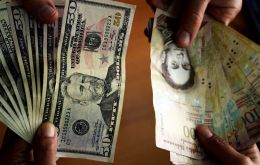
Venezuelan authorities on Monday approved a new, privately run foreign exchange system that will operate in parallel to the official currency control system, as an emboldened opposition challenges President de facto Nicolás Maduro.
-
Tuesday, January 29th 2019 - 08:30 UTC
Investors confident of Brazil: Net FDI flows equaled 4.7% of GDP in 2018
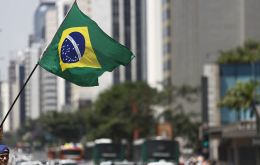
Brazil’s current account deficit doubled last year as economic growth fueled demand for foreign goods and services, while foreign investment reached its highest share of GDP since 2001, the central bank said on Monday.
